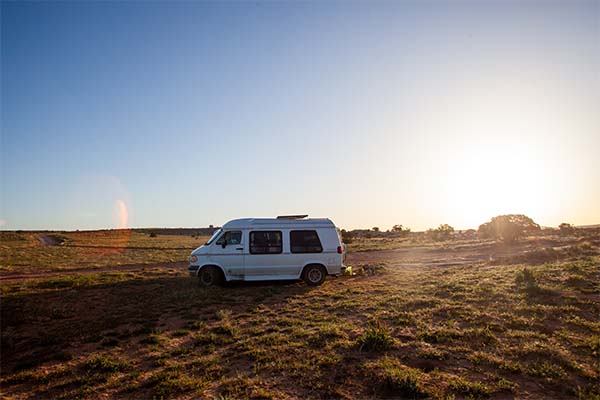The Ultimate Guide to Boondocking: The Basics of Off-Grid Truck Camping
You may have heard the term boondocking or off-grid truck camping before, but you may not know what it means or how to do it. Boondocking is a style of camping that involves staying in secluded locations without access to utilities such as water or electricity. It’s a form of wild camping that requires you to go off the beaten path and find hidden locations where there are no visible signs of human infrastructure.

What is Boondocking?
Boondocking is a type of off-grid camping that occurs in remote areas without any services such as water, power, or sewer hookups. The name boondocking comes from the term “boondock”, which means “an isolated, rural area.” Boondocking is also sometimes called dry camping or wild camping. Boondocking is usually done in areas that are away from towns or busy areas. However, unlike traditional wilderness camping, boondocking can occur in areas that are near towns, but are just harder to access due to their remote location. Boondocking requires minimal equipment, and because it’s off the grid, often means no access to services such as water hookups, electricity, or sewer hookups. You may be asking yourself, “Without hookups, how do you even use the bathroom?” That’s a very good question. We’ll get to that in a bit.
The Benefits of Boondocking
There are many benefits to boondocking on a regular basis, some of which include: - Increased self-reliance - If you’re going to be out in the wilderness, it’s important to know how to take care of yourself. Boondocking can help increase your self-reliance by teaching you how to become more independent and solve problems without immediate help. - Greater appreciation of nature - When you’re boondocking, you’re not only more self-reliant, but you’re also more in tune with nature. Since you’re out in the wilderness, you have no choice but to appreciate it. - Cost savings - Camping can be an expensive hobby, but boondocking can help you save money. You can save money on entrance fees and campsite fees, and you can save money on your utilities if you don’t have to use them. - Fewer interruptions - When you’re out in the wilderness, you’re far away from any interruptions. You don’t have to worry about your neighbors being too loud, your kids making too much noise, or your pets causing a ruckus.
How to Find a Good Boondocking Spot
When looking for a good boondocking spot, you want to make sure the area is remote and away from any busy highways or towns. You also want to make sure the area has access to water. The best way to find a good boondocking spot is to search online. There are a few different websites where people post their favorite boondocking spots. Make sure the area is open to boondocking. If you’re in the desert, for example, you don’t want to try boondocking in a national park. National parks are generally off-limits for boondocking, as are most other types of protected lands.
Things to Know Before You Go Boondocking
Before you go boondocking, you’ll want to make sure you’re prepared. There are a few things you should do beforehand, including: - Research the area - Before you ever leave, research the area where you plan on going boondocking. Make sure you’re not going to be in a national park or too close to a busy highway. - Make sure you have access to water - Your No. 1 priority when going boondocking is access to water. If you don’t have access to water, you’re not going to be able to go boondocking. - Make sure you have a way to get rid of your waste - You don’t want to do any boondocking spots that don’t have easy access to a sewage dump. - Make sure you have a way to get cell service - If you want to stay in touch with friends and family, you’ll need to be near a cell service area.
How to Stay Healthy While Boondocking
It’s not always easy to stay healthy while boondocking, but there are a few things you can do to maintain good hygiene and stay healthy. - Stay hydrated - Make sure you stay hydrated while boondocking. It’s easy to get dehydrated when boondocking, so make sure you keep a water bottle with you at all times. - Use a solar disinfection device - If you don’t have access to clean water and don’t have a way to get water, you can use a solar disinfection device to clean the water you have and make it safe to drink. - Bring hand sanitizer - While water is important, so is hand sanitizer. Hand sanitizer can be used to quickly clean your hands before eating and after using the bathroom. - Stay clean - You should try to stay as clean as possible while boondocking. Bring clean clothes with you, and use hand sanitizer and hand washing to stay clean.
The Bottom Line
Boondocking is a form of off-grid camping that involves staying in secluded locations without access to utilities such as water or electricity. It’s a type of wild camping that requires you to go off the beaten path and find hidden locations where there are no visible signs of human infrastructure. Before you go boondocking, make sure you’re prepared. Make sure you research the area, have access to water, have a way to get rid of your waste, and have a way to get cell service. Before you go boondocking, make sure you know what to expect, so you can have a safe and enjoyable experience.